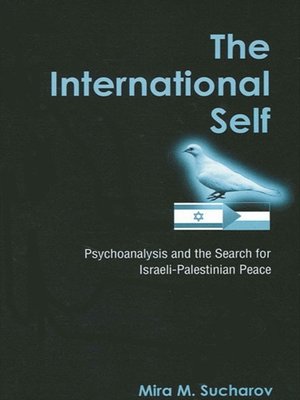The International Self
ebook ∣ Psychoanalysis and the Search for Israeli-Palestinian Peace · SUNY Series in Israeli Studies
By Mira M. Sucharov

Sign up to save your library
With an OverDrive account, you can save your favorite libraries for at-a-glance information about availability. Find out more about OverDrive accounts.
Find this title in Libby, the library reading app by OverDrive.



Search for a digital library with this title
Title found at these libraries:
| Loading... |
The International Self explores an age-old question in international affairs, one that has been particularly pressing in the context of the contemporary Middle East: what leads long-standing adversaries to seek peace? Mira M. Sucharov employs a socio-psychoanalytic model to argue that collective identity ultimately shapes foreign policy and policy change. Specifically, she shows that all states possess a distinctive role-identity that tends to shape behavior in the international realm. When policy deviates too greatly from the established role-identity, the population experiences cognitive dissonance and expresses this through counternarratives—an unconscious representation of what the polity collectively fears in itself—propelling political elites to realign the state's policy with its identity. Focusing on Israel's decision to embark on negotiations leading to the 1993 agreement with the Palestine Liberation Organization (PLO), Sucharov sees this policy reversal as a reaction to the unease generated by two events in the 1980s—the war in Lebanon and the first Palestinian Intifada—that contradicted Israelis' perceptions of their state as a "defensive warrior." Her argument bridges the fields of conflict resolution, Middle East studies, and international relations.






